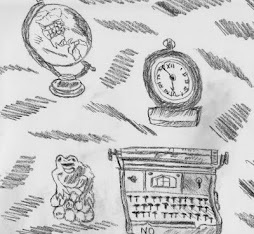Policy Formulation
(1) The Democratic Party had just secured the last piece of the policymaking puzzle with President-elect Barack Obama. With a majority in both Houses and President-elect Obama awaiting inauguration, the Democrats hold the key to future change. President Clinton maintained an identical power shift as President-elect currently enjoy, but during his attempt – mid 90’s - to push universal healthcare, the legislation never gained the expose it required to pass the House. Although the Democrats controlled both Houses, President Clinton’s party members failed to support universal healthcare for its funding and excessive political intervention. In retrospect, the healthcare industry and the federal government knew they made a mistake by not supporting universal healthcare.
In order to repair the economy, Congress and President-elect Obama must work together to reform current government programs. The economy is going to require delicate and immediate attention to rebound from its current slump. President-elect is searching for an efficient strategy in confronting the economy through devising energy and healthcare reform bills. In 1996, President Clinton pushed welfare reform to save on federal government costs and to implement policy changes and requirements. President-elect Obama and Congress will play an important role in policy formulation. According to Cooper (2007), policy formulation is “before designing specific responses to a problem decision must be made as to what type of policy is to be employed” (359). Although Congress assumes decisive control in the policymaking,
President-elect Obama maintains veto power, but it unlikely to exhaust it with a Democratic House and Senate majority impending his inauguration. For the course of this question, policy formulation will serve as the central focus in confronting the economy.
Regulatory policy
Policy formulation confronts regulatory policy, distributive policy, redistributive, capitalization and ethical policies. According to Cooper (2007),“regulatory programs place limits on various forms of activity” (359). Congress may employ regulatory policy to regulate agencies to adopt universal healthcare. As healthcare costs continue to rise, with no end in sight, a healthcare legislation will be introduced – universal healthcare coverage – to enforce lawful standards and practices. Congress may use regulatory policy to regulate the Detroit’s Big Three automakers and the Wall Street Stock Market. Because of risky lending, faulty decision-making and unethical practices, these industries managed to self-destruct the economy. Congress will place limits on various aspects of a program, employment and public practices, influence the licensure process, and monitor change using a combination of governmental agencies.
Distributive policy
According to Cooper (2007), “Distributive policies grant goods and services to specify segments of the population” (360). Welfare, Veterans, Medicare, Medicaid, and possible universal healthcare legislation's confront distributive policies.
As a Veteran and former service member of the United States Air Force, distributive policy is easily understood. When applying for VA healthcare insurance, the administrator asks a series of medical and financial questions. The main goal is to qualify a member using a scale system. If a Veteran member earns less than $20,000 per year, they receive free healthcare benefits excluding dental. Financial data influences whether a Veteran receives free healthcare or must pay for healthcare services. Medicare provides healthcare for elderly clients over the age of 65.
Redistributive policy
According to Cooper (2007), redistributive policy is “aimed at rearranging one or more of the basic schedules of social and economic rewards” (360). Redistributive policy Welfare uses a similar scale to qualify members. Income status is critical in qualify members for benefits. Medicaid provides healthcare for the poor. President Johnson introduced a series of legislation that confronted poverty through introducing Medicaid healthcare insurance for the poor.
President Clinton influenced welfare reform to remedy the detrimental problems due to program policies requiring caps on benefits and work guidelines (clients must seek employment and work a set amount of hours to maintain benefits). Redistributive policy confronts with Congress legislation reforming currently program such as welfare. Congress will most likely use redistributive policies to enact universal healthcare. Passing legislation on universal healthcare will improve the overall state of the healthcare system through using tax measures from the rich to provide healthcare for the uninsured. Because the uninsured drive the per capita cost of healthcare cost through the roof, they also factor into the poor quality of care rendered to patients by Americans physicians, which ranks 37th in the world. Congress will rearrange healthcare with universal healthcare policies.
Capitalization policy
Capitalization policies “provide subsidies, tax credits, tax abatements, contracts, or grants to aid in capital formation” (360). Globalization influenced American businesses to relocate and outsource their businesses to foreign countries. The main goal was to save on overhead – employee, taxes and benefits. Congress may introduce capitalization policies to influence American businesses to stay within American borders and possibly provide incentives to boost the economy. DHL already ceased business in domestic mail services, which severely impacted workers in Wilmington, Ohio. Due to competition and major losses, the mail carrier stopped its domestic services to restructure its company objective. Capitalization policies allow Congress to assist private sector companies with expanding within domestic borders (Cooper, 2007). Private sector companies will be given incentives to help boost the economy.Ethical Policies
According to Cooper (2007), “the Ethics in Government Act was designed to encourage public servants to note and act to avoid possible conflicts of interest, and attempts to promote public support for civil servants by publicizing their efforts to prevent unethical practices” (360). Basically, ethical policies are headed by executive orders and passed by Congress to encourage and boost awareness, but doesn’t mandate any law or ethical policies. The key word is encouraging an agency and not using coercion to enforce administrative laws. Congress and President-elect Obama may use ethical policies to promote energy and environmental changes. Through influencing energy by ethical policies, the economy would enjoy positive success.
Congress will employ redistributive, regulatory, and capitalization policy to boost the economy. Many of the violation, outsourcing and program require government intervention to stimulate the economy. In order to repair the economy, Congress must write legislation to monitor, regulate and supervise the problem that affected the economy.
Question 2
(2) According to Cooper (2007), “The problem with the lack of discretion based on a view of government as rife with fraud abuse and waste is that it produces poor customer service” (322). The preceding statement confronts public service entities that follow the rules as robots. They don’t provide the efficient customer service necessary to be successful. The government is in the business of extending service to the public. Public service is more than about following the internal framework of public and administrative laws. In modeling an entrepreneurial approach, “the government ought to make constructive use of the dynamic of the marketplace to achieve better performance and greater efficiency” (Cooper, 2007, p. 322). Public service entities must be given the freedom to utilize competition restraints between the private sector and in government agencies. According to Cooper (2007), the following confronts the marketplace:- First, it argues that there needs to be sufficient flexibility in how modes of implementation and service delivery are selected to take advantage of competition, both among units of government and between government and private sector organizations.
- Second, in order to compete, public managers must have sufficient flexibility to innovate for greater efficiency and effectiveness and in order to make rapid changes in response to evolving market trends
- The expanded use of contracting out of services and program management is related to the market dynamic (322).
Privatization of prisons and jails support the use of the private marketplace to extend government services. President Clinton made good use of private agencies to expand government. Allowing the private sector to assume customary government roles and duties by reducing costs, improving customer service and providing staff flexibility.
Cooper (2007) noted that many foreign countries are adopting American government processes. The staple of American government coordinates with the traditional British government. The legal and political ideology confronts the use of “market-oriented conception” and confronts the following:
- First, there is a simple assumption that cost is a critical component
- Responsible public action requires a positive cost/benefit calculation
- Third, there are performance standards
- Fourth, there is often an effort to define the responsibility in terms of customer satisfaction (Cooper, 2007, p. 557).
If the government would adopt the market-oriented conception, they would improve on their customer service and potentially save on cost. Cooper (2007) noted, “the market approach ignores the fact that people have legal rights and legislation imposes legally enforceable obligation on administrators and their agencies” (557). In federal agencies, employees retain Title VII discrimination rights, follow federal and administrative laws and retain constitutional rights. Although market-oriented conception lacks legal and legislation protection, it builds on customer satisfaction.
Personal Perception
Personally, the culture of entrepreneurship would improve the government. The government is too big to restrict its services and responsibilities. Privatizing government service would save on cost, provide customer satisfaction and allow the government to concentration on other impending programs. Other the other side of the argument, privatized members tends to lack respect for constitutional rights, which places the government in a tough situation. The government should balance out the agencies, but not completely shift all responsibilities, as legislative and administrative laws require government workers to implement and respect the laws.
(3) The law does make providing public service a complex process. Public administrator find it troublesome to serve the public, but struggling in doing so because of strict adherence to administrative, public and constitutional laws. There are too many legal restraints that make public service entities appear like machines. The court and law are written to protect employees from experiencing discrimination, and receiving unfair and unequal treatment in the workforce. There are an excessive amount of regulations that prevent public representatives from serving the public. They have to avoid making mistakes that will cause them court conflict.
According to Cooper (2007), no entity is willing to challenge law and make reference to adopting legislative policies as the sole problem of public service. The government is too uniformed to provide quality service. The legal debate prevents public entities from making formal decisions. Cooper (2007) the following as myths:
- Myth 1: Law is an Obstacle and the Courts are making it more so
- Myth 2: Deregulation and Privatization will put an end to judicial interference in
Officials’ Lives
- Myth 3: Law is the Problem and New Public Management is the SolutionOfficials’ Lives
- Myth 4- If We Could Just Design the Right Policies, There Wouldn’t Be A Problem (569-571).
Myth 1 allows the court to determine what is right and what they think is wrong. There is a great deal of pressure to model the law, but it is too rigid. Myth 2 claims deregulation and privatization will end judicial, but it will misrepresent the government. Private entities don’t contain the same respect for the law as government employees. Myth 3 confronts law as the problem, which is overwhelmingly true because of traditional Supreme Court practices that prevent modernity practices. Myth 4 attempts to resolve a problem that is impossible and unlikely. No group will ever agree on one policy. There are not right or wrong policies. The government may determine policies, but sometimes they don’t believe in them. In respecting the law, one must possess more flexibility to engage in decision-making. Overall, the government needs to focus on customer satisfaction, but still respect the law. Laws prevent the instance of discrimination and other practices that still occur in the workplace.
References























No comments:
Post a Comment